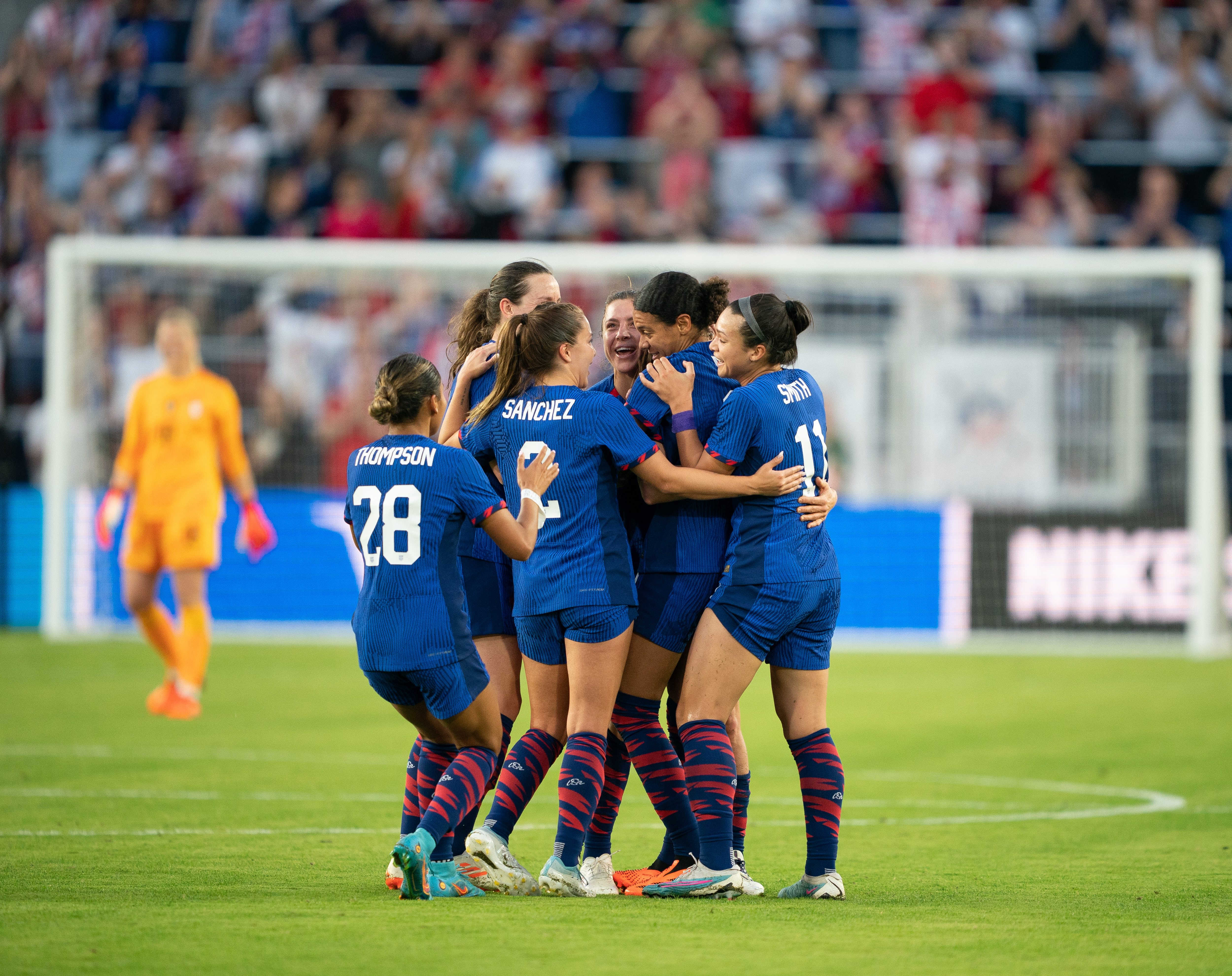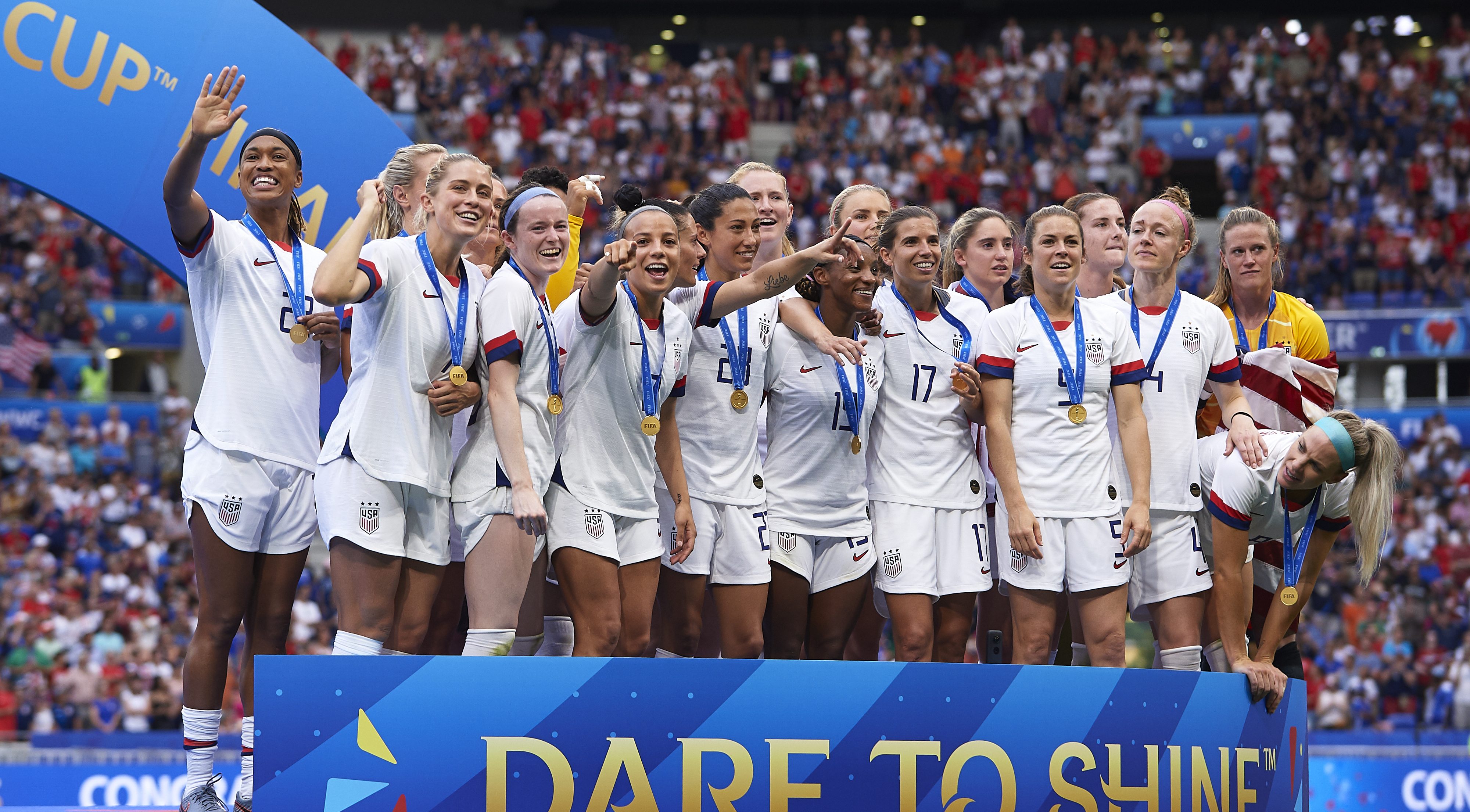The Americans are here.
They may still be jet-lagged, they may still be wearing sweats, and they may have been stumbling through the streets of Auckland for the past few days, but some fans of the U.S. women’s national team broke through with their unmistakable red, white and blue costumes as part of a boisterous crowd at the opening match of the Women’s World Cup.
Stream Connecticut News for free, 24/7, wherever you are.
The thing was, the Americans weren’t even playing.
The U.S. women kick off Saturday against Vietnam. But David Tritz of Laguna Hills, Calif., wore a full-body, stars-and-stripes rain suit to see co-host New Zealand upset Norway 1-0 on Thursday.
Get top local Connecticut stories delivered to you every morning with the News Headlines newsletter.
Tritz is just one of an estimated 20,000 Americans who have already traveled Down Under to support the reigning World Cup champions.
“We flew all this way,” Tritz said at Eden Park, “you can’t not represent. You only live once.”
Tritz came to New Zealand with his wife and five daughters, four of whom played soccer and range from 34 down to 21-year-old twins. They previously attended the 2015 World Cup, watching the U.S. beat Japan for its third title — the Americans added another one in 2019.
His family plans to see seven or eight games of the tournament over 10 days in New Zealand and another eight in Australia.
Of the Americans who have trekked to New Zealand or will do so soon, roughly 9,000 of them have congregated in a Facebook community started three years ago by Kristen Pariseau. There, they’ve planned post-match meeting spots, helped each other with travel questions and heard from a number of helpful Kiwis on the local scene.
“People were asking ‘Is anyone else going to go?’ long ago when people were trying to organize and make a plan,” Pariseau said. “So I started it as a central place, and then it’s just been growing exponentially this last month.”
Pariseau grew up in a hockey family in Michigan, but caught soccer fever after moving to Atlanta with her wife and they became Atlanta United season ticket holders. They went to the 2018 men’s World Cup in Russia because her wife, who hails from Mexico, wanted to see her home country’s team.
They skipped out on the 2019 Women’s World Cup, but after seeing the environment online, Pariseau said she regretted the decision and immediately started saving, including airline rewards, for the 2023 edition. After four years, they flew first class from Los Cabos, Mexico, to Mexico City to Los Angeles to Sydney for a brief stay with friends in Australia.
Once in Auckland, Pariseau has a pair of banners she made that may be visible from the Eden Park stands. One reads “Win it for Becky” and the other “Win it for Mal,” in honor of Becky Sauerbrunn and Mallory Swanson, whose injuries held them out of the tournament.
Traveling to New Zealand to see the U.S. women's team is seemingly a family affair. Dave Perry, an 84-year-old U.S. military veteran, saw the 2019 World Cup with his wife for their 50th anniversary.
This time around, he brought his two daughters, whom he coached in their youth leagues. Liz Perry said she still plays soccer recreationally. The family, from Milwaukee, will stay through the group stage.
There may not be many more veteran American fans than Steff Colonna, who’s attending her third Women’s World Cup.
She played soccer in college at John Carroll University and said she’s closely followed the U.S. women’s national team for 20-plus years. She often attends events put on by the American Outlaws, an unofficial support group for the American national soccer teams.
Now living in San Diego, she said she keeps making the investment to support the U.S. team for a number of reasons, but mainly because of the visibility it brings to women’s soccer and women’s sports as a whole.
“They represent our country and they represent a sport, and what they’re doing for women’s sports is awesome,” Colonna said. “You come back because you love the team. We’re spending a lot of money to come over and support them. We just love the team. It doesn’t hurt that they’re the No. 1 team in the world.”
___
Max Ralph is a student in the John Curley Center for Sports Journalism at Penn State.



